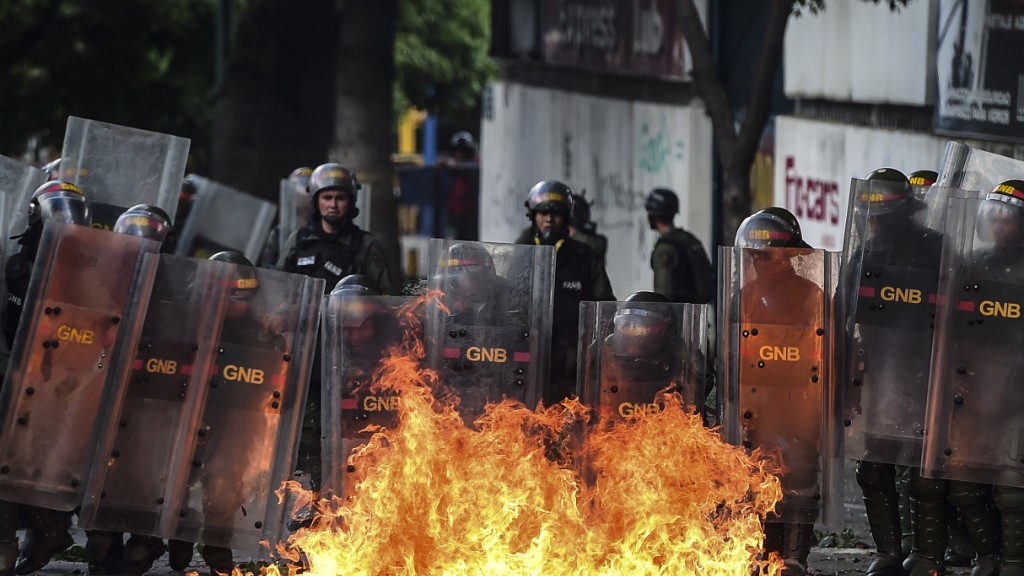
President Trump has a powerful weapon if he decides to punish Venezuela: sanctions on oil, the only source of cash for the crisis-torn nation.
Venezuelan President Nicolas Maduro has called for a vote on Sunday that Trump and many other critics say will transform the South American government into dictatorship.
Maduro "dreams of becoming a dictator," Trump said in a statement on July 17. "The United States will not stand by as Venezuela crumbles."
For his part, Maduro called Trump an "emperor."
The Trump administration on Wednesday slapped sanctions on 13 government and military officials tied to Maduro. Mexico and Colombia followed with sanctions on the same individuals.
Trump also threatened further "strong and swift economic action" if Maduro goes through with the vote. Senior administration officials say "all options are on the table," which means Trump could ban shipments of Venezuelan oil to the U.S. Or U.S. oil going to Venezuela. Or both.
Related: Venezuela's hyperinflation is jaw-dropping See for yourself
That possibility isn't lost on Venezuela's young protesters in Caracas known as "La Resistencia" who go up against Maduro's national guard in violent clashes nearly every day.
One protester, an engineer who declined to give his name, told CNN Wednesday "in a way, it would help us," arguing that U.S. sanctions would force Maduro to change his ways or step down.
But sanctions on oil are a double-edged sword: It's one of Trump's few options to really hurt Maduro. Venezuela's only source of income is oil sold abroad and one of its top customers is the United States. In April, the U.S. accounted for about 10% of Venezuela's oil exports.
"If they ever got sanctions from the U.S. -- that would be completely crippling," says Diego Ferro, co-investment officer at Greylock Capital, a U.S. firm that owns Venezuelan debt.
Choking off the country's lone source of income, however, risks worsening Venezuela's humanitarian crisis. Millions of people continue to suffer through extreme shortages of food and medicine there.
Another risk: U.S. gas prices could rise. Venezuela sends cheap oil to U.S. energy firms, and oil sanctions would force the U.S. to buy oil elsewhere. That pivot could cause American gas prices to pop.
Related: Delta ends flights to Venezuela
"Nobody wants to be the guy that raises gas prices, that's not good for elected people," says Russ Dallen, managing partner of Caracas Capital, a U.S. investing firm that doesn't own Venezuelan debt.
U.S. sanctions could also embolden Maduro's base, igniting them to double down on their heavy-handed tactics against Venezuela's opposition protesters.
Venezuela exported the third most oil to the U.S. so far this year, behind Saudi Arabia and Canada, according to data from the U.S. Energy Information Administration. Its oil exports to the U.S. totaled $10.2 billion in the year ending in May, according to Panjiva, a global trade research firm.
Given all the risks, some doubt Trump would actually go forward with a broad sanction on Venezuelan oil.
"Once you deploy a sanction, there can be unintended consequences," says Eric Farnsworth, vice president at the Council of the Americas, a business association. "I'm not convinced they're going to move forward to sanction the energy sector."
Trump administration officials say any further sanctions announcements would come soon after Sunday's vote.


